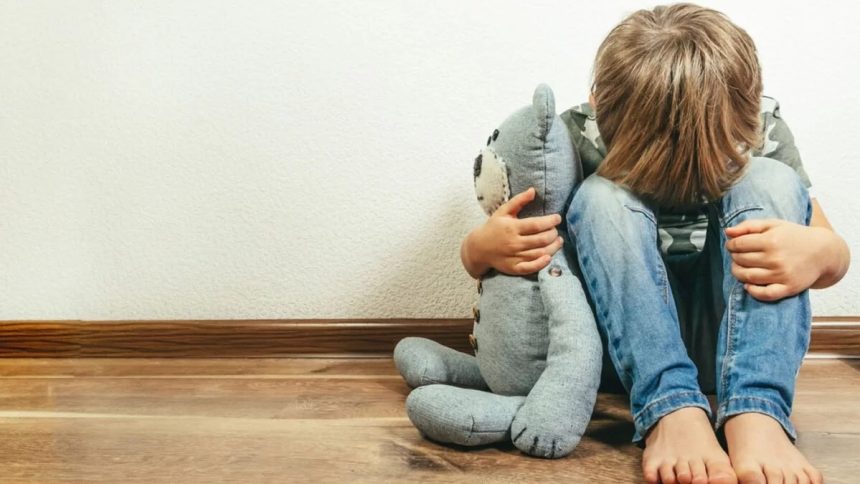Raising kids is tough. When addiction enters the family dynamic, especially through a parent, the challenges multiply. Children are incredibly perceptive, and their developing minds often adopt behaviors and attitudes observed in their parents. This scenario becomes particularly concerning when a mother struggles with addiction, as she often serves as the primary caregiver and role model in a child’s life. The impact on the child can be profound and long-lasting, shaping their future behaviors and mental health.
The Mirror Effect: How Children Mimic Behavior
Kids are natural mimics. From a young age, they learn by copying the actions, speech, and habits of those around them, particularly their parents. When a mother exhibits addictive behaviors, her children may start to view these patterns as normal. The repercussions extend beyond mere behavior imitation; they can affect a child’s emotional and psychological development.
A mother battling addiction might display inconsistent behavior, emotional unavailability, or neglect, setting a confusing standard for normalcy in her children’s eyes. This inconsistency can lead children to struggle with trust, attachment, and self-esteem issues later in life. The unpredictability in the home can lead to anxiety, as children remain perpetually unsure about their environment and the mood or behavior their mother might exhibit.
Environment Counts: The Role of Home Stability
A stable home environment is crucial for healthy child development. In homes where addiction is present, stability often takes a back seat. For kids, a clean and organized home can become a rarity, replaced by chaos and unpredictability. This shift affects not just their current state of living but also their ability to develop routines and the concept of normalcy.
The physical environment of a home impacted by addiction can also suffer. Neglect can lead to unsafe living conditions, with hazards that are not immediately obvious but that deeply affect a child’s sense of security and well-being. Such an environment can foster feelings of shame and embarrassment in children, who may become reluctant to invite friends over or participate in social activities outside the home.
Communication Breakdown: The Ripple Effect on Social Skills
Addiction can significantly impair a mother’s ability to communicate effectively. This lack of clear communication at home teaches children to either withdraw or act out, seeking the attention and interaction they lack. Without a model for healthy communication, children may struggle to express their feelings, resolve conflicts, or connect with peers in healthy ways.
This communication breakdown extends beyond the home. In school, children from homes disrupted by addiction might find it difficult to engage with teachers and classmates. They may become isolated or be perceived as troublemakers, further complicating their social interactions and educational experience. The development of crucial social skills is stunted, making it harder for them to navigate the world confidently and effectively.
Building Resilience: The Power of External Support Systems
While the influence of an addicted mother can be daunting, external support systems play a crucial role in mitigating negative impacts on children. Schools, mentors, and extracurricular activities provide alternative role models and healthy environments that can counterbalance the instability at home. Teachers and coaches can become influential figures, offering the guidance and stability that might be lacking in the home environment.
These figures not only serve as examples of healthy adult behavior but also offer emotional support and encouragement. By engaging in sports, arts, and other group activities, children can develop a sense of belonging and achievement, boosting their self-esteem. These settings teach essential life skills such as teamwork, perseverance, and leadership, which are vital for personal development.
A Path Forward: Seeking Professional Help
When addressing the impact of a mother’s addiction on her children, professional help can be invaluable. Counseling and therapy provide safe spaces for children to process their experiences and feelings. Mental health professionals can help children understand they are not to blame for their parent’s behavior, which is crucial for their self-worth and mental health.
For families, whether that’s finding rehab centers in Fresno, Manhattan, or anywhere in between, getting the mother the help she needs is often the first step in healing the entire family. Therapy can also involve teaching children coping strategies to deal with stress and uncertainty, empowering them to thrive despite their challenging home environments. Engaging in family therapy can further aid in repairing and strengthening the familial bonds strained by addiction.
Nurturing Hope: The Community’s Role
Communities play a pivotal role in supporting children affected by parental addiction. By fostering inclusive and supportive environments, communities can help buffer the adverse effects faced by these children. Initiatives like community centers, support groups, and educational programs about addiction can demystify and destigmatize the issue, making it easier for children and their families to seek help.
Community leaders and neighbors can extend a helping hand, whether it’s offering to babysit, providing a listening ear, or including the children in local activities. Such gestures help reduce the isolation that many of these families feel and reinforce the notion that the community cares and is there to support them.
The challenges children face when growing up with an addicted mother are significant, but they are not insurmountable. With the right support structures, both within the family and from the broader community, these children can overcome the obstacles posed by their circumstances. The key lies in recognizing the signs early, intervening positively, and providing consistent support. In doing so, we can help pave the way for a brighter, more stable future for these vulnerable children, ensuring they grow into well-rounded, healthy adults.
Lynn Martelli is an editor at Readability. She received her MFA in Creative Writing from Antioch University and has worked as an editor for over 10 years. Lynn has edited a wide variety of books, including fiction, non-fiction, memoirs, and more. In her free time, Lynn enjoys reading, writing, and spending time with her family and friends.















